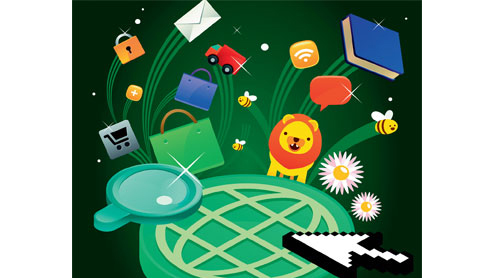
Disposing of waste in this city is not for amateurs. Use opaque bags for this, translucent bags for that. Empty and rinse your milk cartons.
Flatten boxes and bind them with twine. It was this last rule that threw me over the edge. Our apartment was overflowing with boxes but bereft of twine. In New York, that is a bad situation. We tried painter’s tape, but the tape could not carry the load. Nor could masking tape. As my wife and I turned the pack of vanquished boxes this way and that, struggling, breaking an antique chest in the process from all the commotion, I found myself becoming unaccountably angry. Later I realised what this anger was about.Technology has quietly nibbled away at my physical exertions in the world. Amazon has decimated my shopping trips. Fresh Direct lets you order groceries on the Web for delivery.
New books arrive through the ether. Ideas are typed on Evernote, no longer jotted on paper. The morning walk downstairs for the newspaper has become a simple reach for the phone.The less we must do in the physical world, the more the chores that remain will irk us. This, I think, was the source of my anger that day: a silly expectation, set by so much digitally wrought seamlessness in our lives, that everything should be that seamless.But if many technology dreamers have their way, even the most analog corners of our physical lives will become, more and more, colonies of the digital. Technology may never be able to entwine your boxes, but it is likely to play a greater role in hailing your taxis, keeping your refrigerator stocked and various other tasks that at present cause the unfortunate lifting of fingers.
This past week at the Consumer Electronics Show in Las Vegas, which is to gadget makers what the Oscars are to moviemakers, much of the buzz was about the so-called Internet of things. Various companies showed off tools that intervened in our physical lives. And a group of entrepreneurs seized the moment to introduce, at the show, a brand-new Internet of Things Consortium.As the techies pursue this ambition — to transcend the old idea of technology as a parallel virtual realm and instead make it the lifeblood of everyday human activity — there will be tension between them and the vested interests of the physical old world. For the technology sector — more lightly regulated than, say, the financial industry — is pushing its way into areas where its libertarian ethos will conflict with its capacity to cause harm.
It is one thing for a search engine to misdirect you, or an e-mail account to disappear. But what happens when one of these new apps accidentally burns down your house, or kills your grandmother by mistakenly turning down the heating, or miscalculates your food intake and causes you to under-eat, then faint while driving?One early collision has been between the taxi-hailing service Uber and regulators in New York. The company lets users hail sedans with a few smartphone clicks. It sought to extend its service to city-licensed cabs. But regulators in the city fought it, charging that the law allowed only physical hails with a hand, not virtual ones with a phone. After a long battle, the city announced that it would allow Uber to operate in a limited pilot project.
Similar clashes loom over digital services that allow people to become small-scale innkeepers (Airbnb) without having to comply with the hotel regulations of the physical old world; to hire labour online (oDesk) without having to comply with labour laws; to raise funds from regular people (Kickstarter) without having to comply with the rules about raising money on the stock market. In some cases, the old and new worlds will partner, as with the rental-car giant Avis’s recent purchase of Zipcar. But the cultural divide between these worlds is vast.
Digital people can be sceptical, even contemptuous, of the physical world’s ways. They tend to be wary of laws and regulators; confident in the power of self-policing and rating systems to protect the consumer; committed to the belief that the Internet’s variety of unregulated private transactions is somehow more honest and less corruptible than the analog private transactions whose failures — think antifreeze lethally sneaked into medicine or child labor in factories — gave rise to the regulatory state.But the technologists’ great ambitions for our physical lives mean that they will have to learn to play in the non-ethereal world — or else persuade the guardians of that world to change. – KahleejTimes












